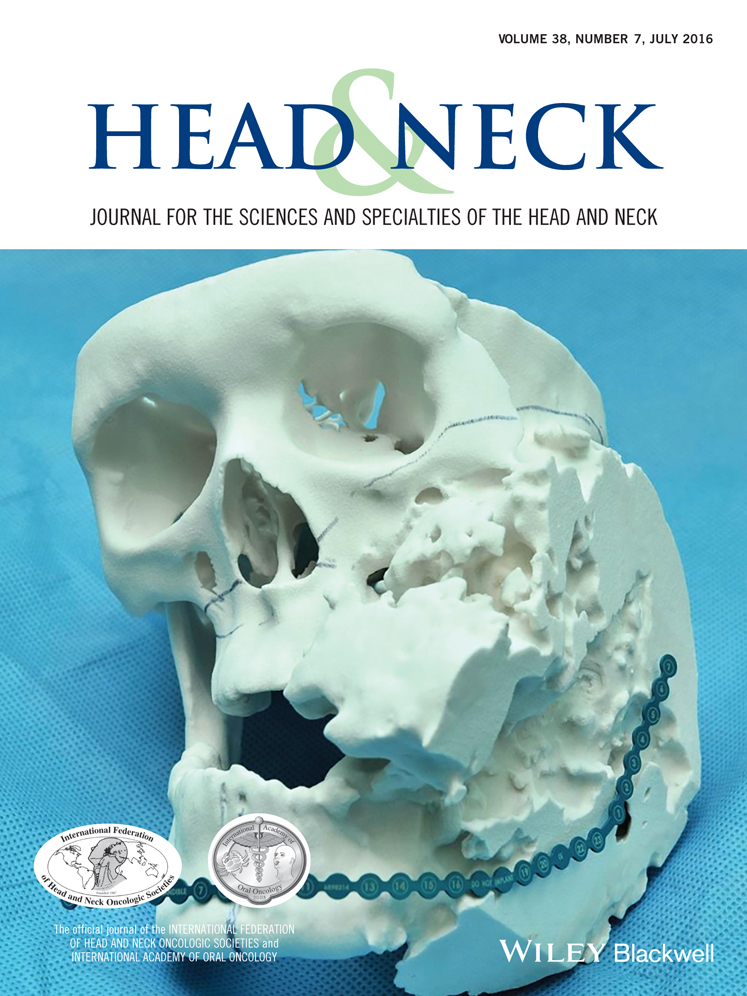Comparative multidimensional assessment of laryngeal function and quality of life after radiotherapy and laser surgery for early glottic cancer
This work was presented at the American Academy of Otolaryngology Head and Neck Surgery Annual Meeting, Vancouver, Canada, September 29 to October 2, 2013.
Abstract
Background
This study was designed to comparatively assess laryngeal function and quality of life (QOL) of patients after laser surgery (LS) or radiotherapy (RT) for early glottic cancer.
Methods
Sixty-four patients with T1 glottic cancer treated with RT or type II cordectomy1, 2 underwent both subjective and objective vocal assessments. The LS group was divided into the following: (1) vaporization with defocused mode (laser surgery [LS]-Vap); and (2) excision with focused mode using lower power (LS-Ex).
Results
Auditory-perceptual evaluation and videostroboscopic images in the LS-Ex group worsened shortly after treatment and time-dependent recovery was quicker than in the LS-Vap group. The LS-Ex group showed equivalent posttherapeutic vocal function with the RT group by acoustics, aerodynamics, and self-assessment questionnaire analysis, whereas the LS-Vap group showed statistically significant worse function.
Conclusion
The multidimensional assessment showed that early glottic cancer could be successfully treated by either RT or LS-Ex with equivalent posttherapeutic laryngeal function and QOL. © 2016 Wiley Periodicals, Inc. Head Neck 38: 1085–1090, 2016




